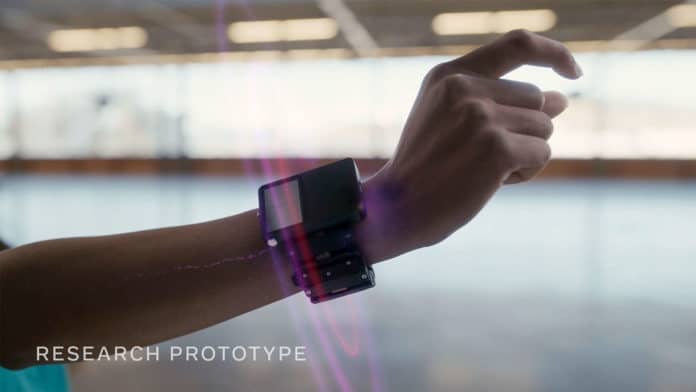Facebook is innovating with a new Augmented Reality Interface for the near future that won’t force us to choose between interacting with our devices and the world around us. Its first smart glasses are coming out this year, but the next model might let you control computers with your mind.
The company is working on a wrist-based wearable that will be able to control augmented reality (AR) glasses. The wristbands use electromyography (EMG) to translate subtle neural signals into actions – like typing, to swipe, or playing games.
It is capable of measuring hand and finger gestures and even supports haptic feedback. The project is being developed by Facebook Reality Labs.
EMG uses sensors to translate electrical motor nerve signals that travel through the wrist to the hand into digital commands that you can use to control the functions of a device. These signals let you communicate crisp one-bit commands to your device, a degree of control that’s highly personalizable and adaptable to many situations.

The signals through the wrist are so clear that EMG can understand finger motion of just a millimeter. That means input can be effortless. Ultimately, it may even be possible to sense just the intention to move a finger. With sensors on the wrist, you can interact with virtual objects or control the ambiance of your living room in a nearly frictionless way. And someone born without a hand can even learn to operate a virtual one.
Even in their simpler iterations, these controllers would offer an interface that you could wear all the time instead of picking up and holding, like the current Oculus Touch VR controllers.
This marks Facebook’s step in the fierce competition between tech giants such as Apple, Amazon, and Alphabet in an industry that believes glasses will eventually replace cell phones altogether. Facebook has previously said that smart glasses will need to rely on devices such as cell phones in the future due to constraints such as battery life and heat generated by processing. The wristband will be able to function as a platform for computing and support these functions.
The AR wristbands are still undergoing tests and improvements in the processing of information and data collection. For this reason, the date of the launch of the new accessory has not yet been revealed by the company.
Later this year, Facebook aims to announce groundbreaking work in soft robotics to build comfortable, all-day wearable devices and give an update on our haptic glove research. The device focuses on wrist-based EMG (electromyography) as the path for developing wristband devices as an initial stage and then moves forward with haptic gloves and more cohesive wearables later.
